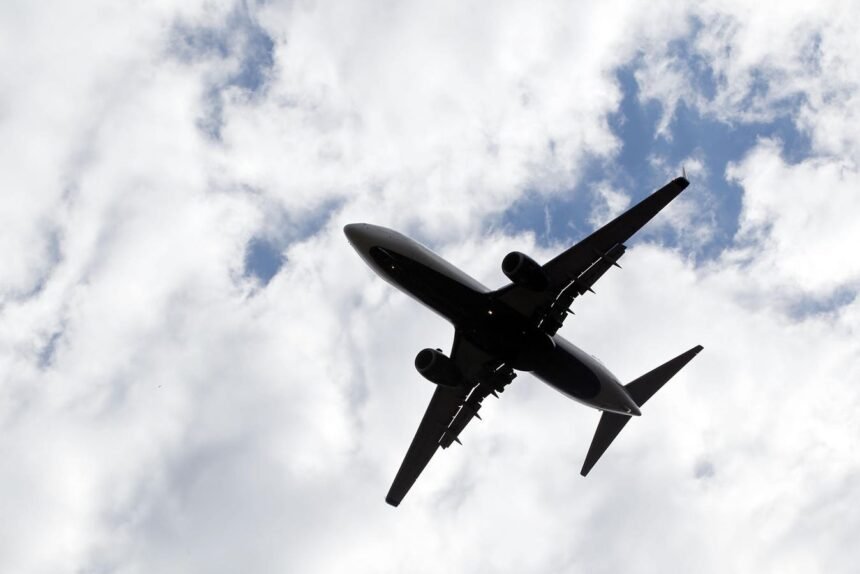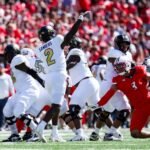Airplane flying
While the life of an NBA player is demanding from what you see on the court, it is also incredibly challenging off the court, especially when traveling across time zones. There is both a physical and mental toll that comes with shifting between different parts of the country. Performance, routine, and sleep can all be disrupted if there’s not a thorough plan to manage these various aspects, ensuring that peak performance is maintained throughout the season.
DeAndre Jordan of the Denver Nuggets spoke with me to share his strategy for dealing with time zone changes: “Meditation helps me. I try to stay in the present and not think about the difference in time. I allow my body to adapt to whatever time zone I am in. If it’s time to wake up there, I’ll wake up. If it’s time to sleep there, I’ll sleep. I use a ‘do as the locals do’ approach. However, I will always listen to my body and take the best action possible.” Through practicing mindfulness, Jordan has been able to adjust his body’s natural rhythm to the new environment and handle the challenges of jet lag without overthinking the process.
MINNEAPOLIS, MN – FEBRUARY 05: DeAndre Jordan #6 of the Denver Nuggets dunks the ball as Naz Reid … [+]
Many experts also speak on the importance of adapting quickly to the new local time zone. Derek Suite, M.D., Director of Sports Psychiatry and Mental Performance Science for the New York Knicks and New York Jets, emphasizes the importance of gradual preparation and immediate adjustment to the new time zone upon reaching the destination. “On arrival, players are encouraged to adapt quickly to the local schedule by eating meals and working out at appropriate times.” Dr. Suite also notes how important it is to hydrate and get outside to help reset the internal clock to mitigate the effects of travel.
Jaylen Brown, NBA Champion with the Boston Celtics, is well aware of the challenges with not only frequent domestic travel but also international travel. “I probably travel more than any other NBA player, particularly because of my off-season, going back and forth across time zones between East and West Coasts, Europe, the Middle East, and Asia,” he says. What remains important to him is maintaining good sleep as well as his strict training regimen. He acknowledges the adaptability he needs to continuously practice to adjust his sleep schedule when traveling. “I do deep meditation, breathing, and swimming to help adjust my sleep schedule. I also use technology to monitor and enable my naps and sleep before and after workouts and games so my body recovers optimally.” He admits that if he does not sleep properly, his workouts, practices, and game-day performance are far from optimal.
BOSTON, MASSACHUSETTS – JUNE 17: Jaylen Brown #7 of the Boston Celtics reacts after a play against … [+]
It’s not just bedtime and awake time that’s disrupted when moving across time zones. Brenda Bursch, PhD, Professor, UCLA Department of Psychiatry and Biobehavioral Sciences, has years of experience working in professional basketball as a clinical psychologist and highlights another factor. “The mental strain of time zone travel, which is disturbing to circadian rhythms, can be further exacerbated by disruptions in normal routines, the need to adjust to new environments, and the physical toll of sitting in an airplane for hours” she notes. I have witnessed this firsthand while traveling with an NBA team. Not only is there a need to adjust to the new time zone, but there’s also significant disruption to players’ routines, not to mention removal from their social supports at home. All of these factors certainly contribute to the mental strain of travel.
NBA athletes are increasingly turning to technology and a range of physical and mental recovery tools to enhance their performance and well-being. Tyler Lesher, DHSc, ATC, CSCS, Athletic Trainer for UCLA Men’s Basketball and Golf, and Former NBA Athletic Trainer, discusses innovative recovery techniques being implemented around the NBA. “Traveling is exhausting, especially when going across time zones,” Dr. Lesher says. To combat jet lag, he suggests consistent sleep routines and proper nutrition but also highlights the role of emerging practices like grounding, or earthing. “Grounding involves actively connecting with the ground in the current time zone, which has been shown to decrease inflammation and normalize circadian rhythms.” Dr. Lesher also points to the use of pulsed electromagnetic fields (PEMF), which stimulate cell function to aid recovery. “Products like HAELO, which improve sleep and performance, are designed to help athletes recover more quickly after travel.”
It’s crucial that players utilize both mental and physical recovery strategies between games and travel in order to sustain high performance. As Dr. Lesher points out, the faster athletes can recover, the better they will perform. His insights reflect the growing understanding that recovery is not simply physical rest, but also about synchronizing the body’s internal rhythms and one’s mind with the external environment.
The optimal approach to managing the mental and physical strain of time zone travel requires a multi-faceted approach. From mindfulness and meditation to optimizing sleep routines, players like Jaylen Brown and DeAndre Jordan are focused on enhancing both their mental and physical recovery routines. With insights from Dr. Derek Suite and Tyler Lesher emphasizing the need to minimize travel disruptions, and Dr. Brenda Bursch highlighting the importance of maintaining routines, players and teams can better understand how travel affects mental clarity—crucial for NBA athletes to perform at their best. With well-planned strategies, athletes can minimize the effects of jet lag, maintain their mental well-being, and optimize their performance on the court, no matter what time zone they play in.











